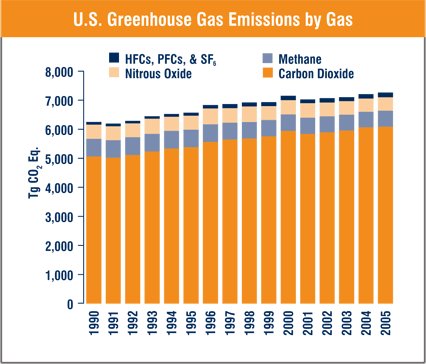
"The United States is committed to reducing the greenhouse gas intensity of the American economy by 18 percent over the 10-year period from 2002 to 2012. This initiative puts America on a path to slow the growth of greenhouse gas emissions, and -- as the science supports -- to stop, and then reverse that growth."
---2001 White House Policy Statement
Wank, wank, wank,
Here's the data

However, 2006 did actually see a slight reduction of 1.5%
in Carbon intensity. But this is more likely driven by
the high cost of energy, than actual policy. A similar
reduction occurred during the year 2001 which was also
a bad economic year. Reduced energy consumption clearly
occured in the 2008/9 (the economic disaster years) but the
data is not yet in to formalize the actual reduction  Overall gasoline consumption appears to have been down by about 5%
over thie period.
Overall gasoline consumption appears to have been down by about 5%
over thie period.

However, over the period 1990-2005 one notes the following:
Clearly these are the two policy areas to attack, which natural leads us to the The No Balls Energy Act of 2007
Breakout of combusting of fossil fuel by various sections
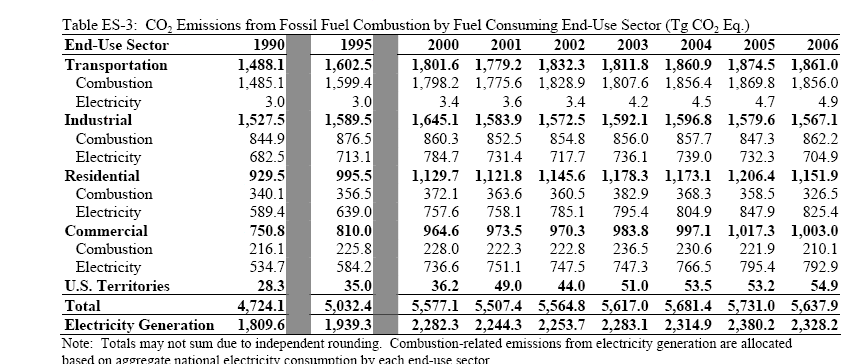
It is useful to reclassify the US emissions using the IPCC
criteria. This reclassification clearly shows that we need a new energy policy.
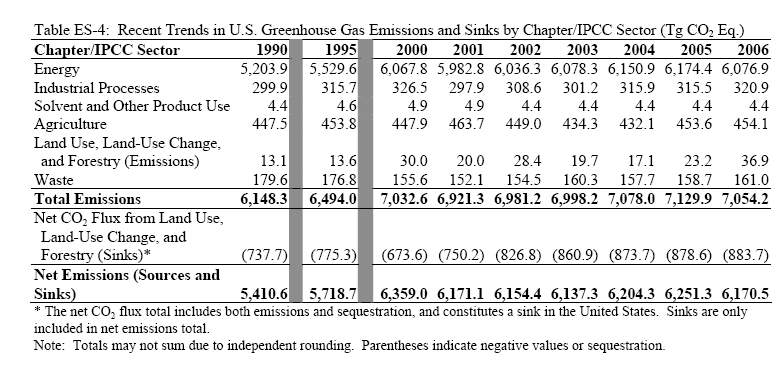
Rates of growth:
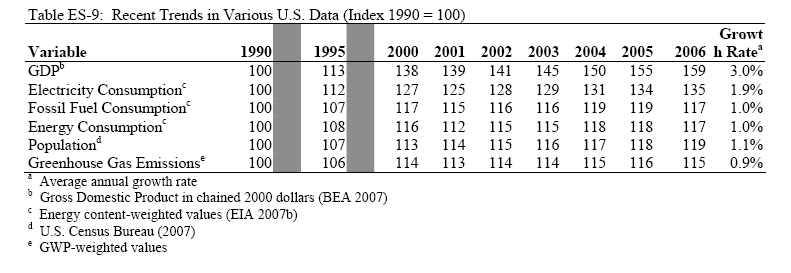
The waveform of our Carbon intensity really just shows the kind of stochastic behavior that one might expect due to fluctuations in the US economy. There clearly is no systematic decrease.
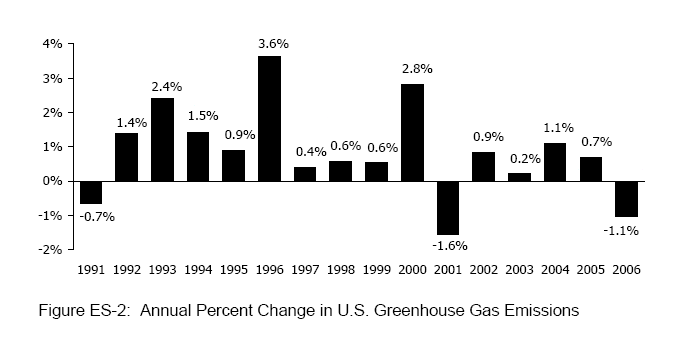
Once again, wank, wank, wank

Will the New Adminstration Be Different?
Maybe:
But the economic model is a) costs of production will be higher per vehicle, b) those costs are passed on to the consumer directly, c) consumer gets this money back because of lower fuel costs.
Let's see how this works by example:
Joe SixPack currently gets 20 mpg in his Joe Six Pack truck:

If he doubles his fuel mileage to 40 mpg
US Automakers generally claim that producing more fuel efficient cars can increase the average sticker price by as much as 25%
Joe's truck then goes from 20K to 25K
Big deal, at the current a likely future price of gas, this 5 K difference can easily be made up in reduced fuel costs.
But can Detroit produced the required volume of cars by the year 2016?
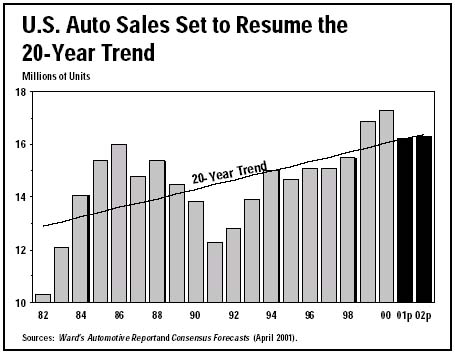
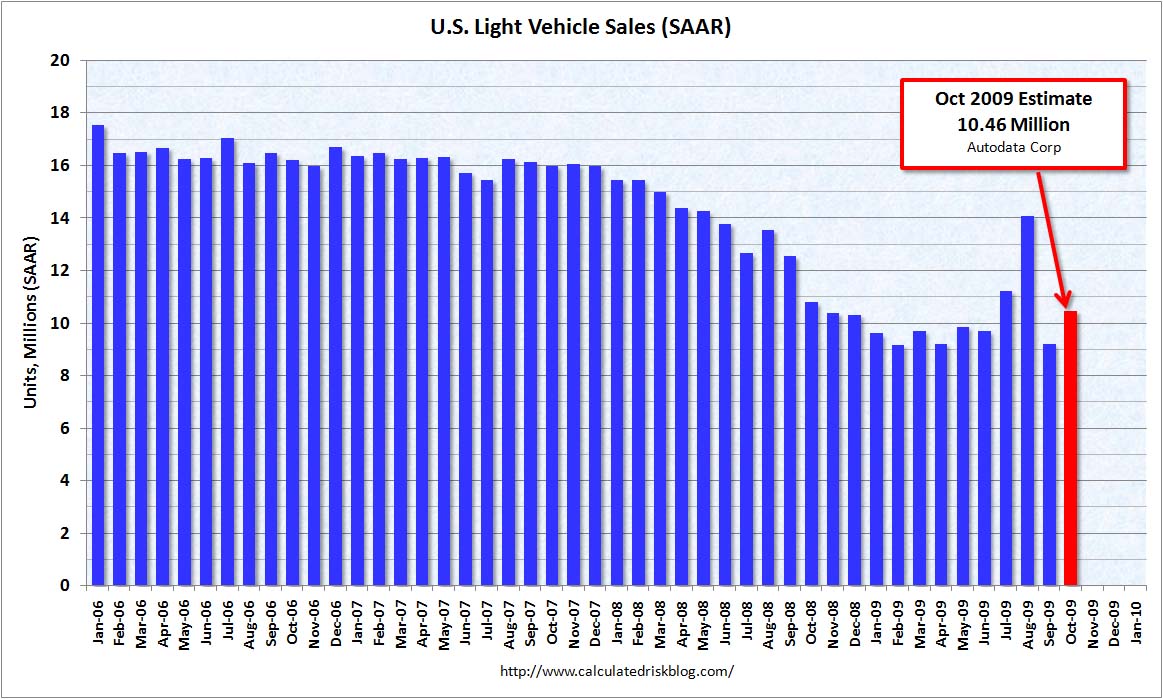
Things look less good
If a policy goal is physically unattainable, then this amounts to Policy Wanking as well.
Currently most fuel efficient cars:
 48/45 (hybrid)
48/45 (hybrid)
 40/45 (hybrid)
40/45 (hybrid)
 30/41 (diesel)
30/41 (diesel)
 28/37 (lightweight)
28/37 (lightweight)
 29/36 (lightweight)
29/36 (lightweight)
Where are the US cars?